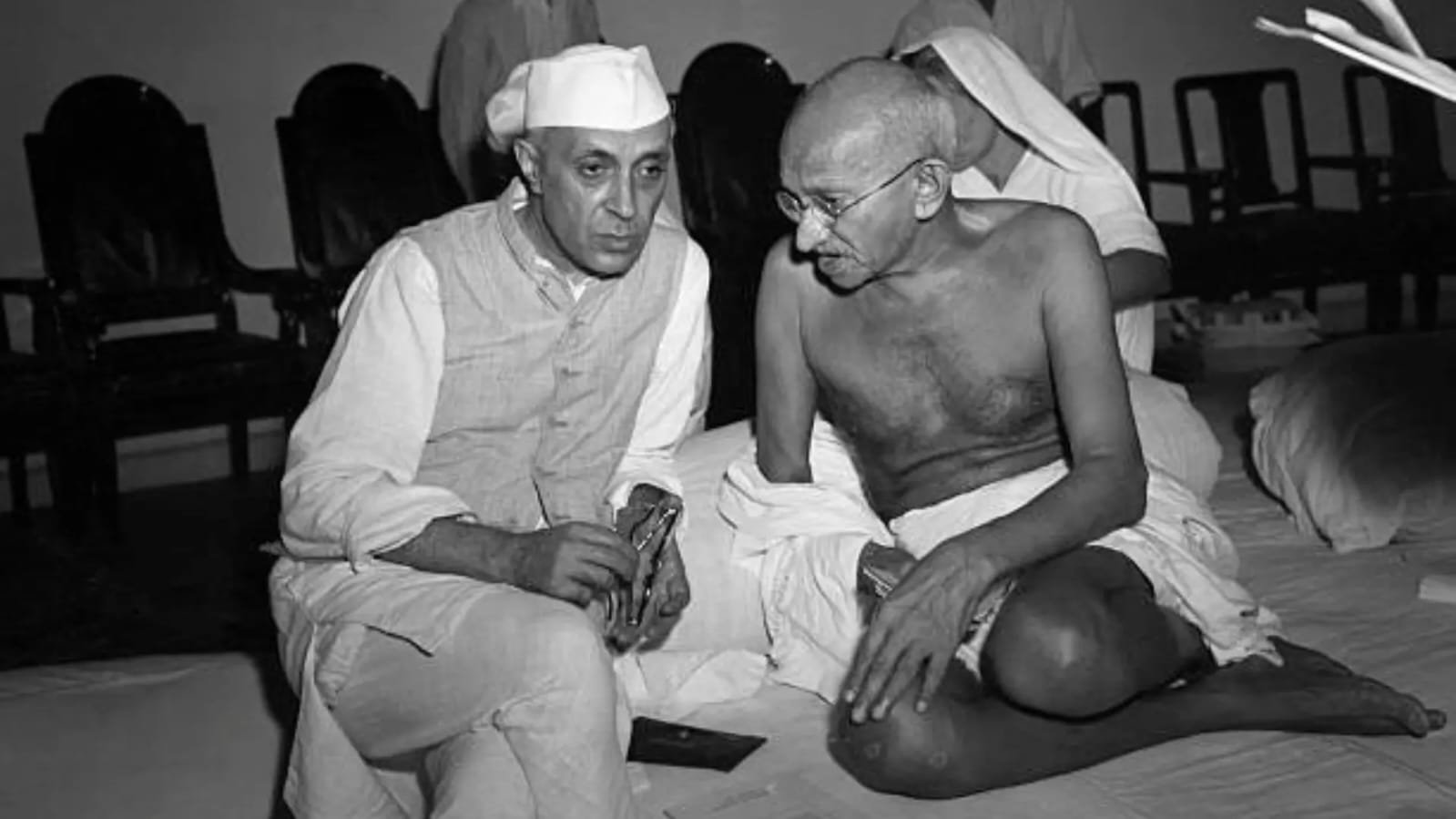Every year on 2nd October, the entire nation celebrates Gandhi Jayanti, the birth anniversary of Mahatma Gandhi, who is remembered as the Father of the Nation. His life was based on truth, non-violence, and morality. Gandhi Ji not only played the most crucial role in India’s independence but also showed the whole world that great changes can be achieved without violence.
But Gandhi Jayanti and Today’s India stand at a strange crossroads. On one side, the government and institutions pay tributes to Gandhi, while on the other, a section of society criticizes him and glorifies Nathuram Godse as a hero. Why is this happening ? Let us try to understand Gandhi’s life struggles and the changing perception of today’s India.
Gandhi’s Struggles and Patriotism
Mahatma Gandhi was born on 2nd October 1869 in Porbandar, Gujarat. From childhood, he displayed simplicity and courage to speak the truth. After studying law in England, Gandhi went to South Africa, where he faced racial discrimination. Despite having a first- class ticket, he was thrown out of a train just because of his skin color. This incident became the turning point of his life.
From South Africa, Gandhi began his journey of Satyagraha and non-violent resistance. After returning to India, he led several movements for the rights of farmers, laborers, and common people. The Champaran Satyagraha (1917) and Kheda Satyagraha (1918) were his early struggles that improved the conditions of farmers.
His biggest contribution was transforming the freedom struggle into a people’s movement. Through the Non – Cooperation Movement, Dandi March, and Quit India Movement, millions of Indians joined the fight. Gandhi believed that if the masses united under the principle of non-violence, the British would be forced to leave India.
Also Read- Top 10 Career Skills You Need to Learn to Stay Ahead
An Inspiring Episode of Gandhi’s Patriotism
The Dandi March of 1930 is considered one of the most iconic symbols of Gandhi’s patriotism. The British had imposed a tax on salt, which even the poor could not afford. Gandhi, along with 78 satyagrahis, marched 240 miles from Sabarmati Ashram to Dandi and broke the law by making salt on the seashore.
This was not just about salt – it was India’s declaration of freedom. Millions joined the march, and the world witnessed how an empire could be shaken without violence. The Dandi March symbolized Gandhi’s unwavering patriotism and courage.
Today’s India: Why Hatred Towards Gandhi and Glorification of Godse ?
In today’s India, a section of society openly criticizes Mahatma Gandhi. On social media, sharp comments against Gandhi are common, while Nathuram Godse – the man who assassinated Gandhi – is regarded by some as a hero. There are several reasons behind this perception:
The pain of Partition: Many believe Gandhi was biased towards Muslims and that his decisions led to India’s partition. The truth, however, is that partition was the result of complex political and historical circumstances, not just Gandhi’s actions.
Godse’s ideological image: Godse has been projected as a nationalist icon. Certain groups portray him as the defender of Hindu identity, making Gandhi and Godse a subject of political debate even today.
Social media propaganda: In the digital age, historical facts are often distorted. Gandhi’s weaknesses are exaggerated, while his contributions are overlooked. This selective portrayal creates resentment towards Gandhi among sections of the youth.
The Message of Gandhi Jayanti and Our Responsibility
Gandhi Jayanti should not be reduced to just a symbolic holiday. It must remind us of Gandhi’s real contribution – teaching that truth and non-violence can win freedom, and leadership means sacrifice, struggle, and working closely with the people.
In today’s India, Gandhi’s relevance is greater than ever. At a time when society is moving towards hate, violence, and division, Gandhi’s path offers peace and unity. We must remember – Godse might have killed Gandhi’s body, but he could not kill Gandhi’s ideas. His philosophy still lives on – in every struggle, in every movement, and in every voice against injustice.
Gandhi Jayanti – Conclusion
Gandhi Jayanti and Today’s India force us to reflect on the path we are heading towards. If we abandon Gandhi’s principles and glorify only Godse’s hatred, both our democracy and society will weaken.
Gandhi’s life teaches us that the greatest strength lies in the unity of people and the power of truth. Today, more than ever, we need to celebrate Gandhi Jayanti not as a ritual but as a day of introspection and transformation.
Friends, you are reading this article on www.dsrinspiration.com. DSR Inspiration is a digital media platform where you will find information on every aspect of life that truly matters. You can also connect with us on YouTube, Instagram, and Telegram
Also Read- CJI B.R. Gavai Biography: Journey of India’s First Buddhist Chief Justice of India
Success Story : Varsha Patel Became DSP with Her 20-Day-Old Baby in Her Arms


